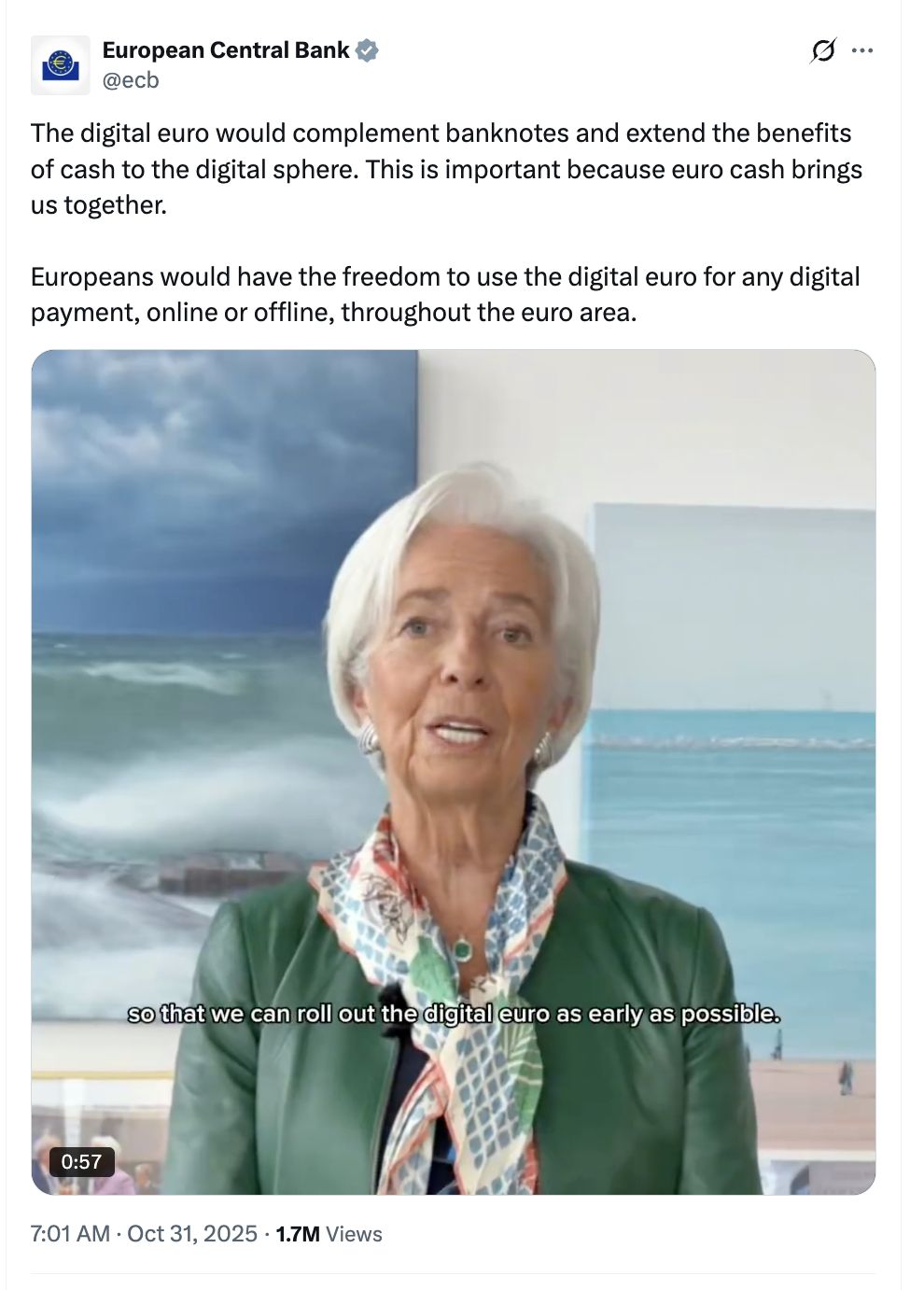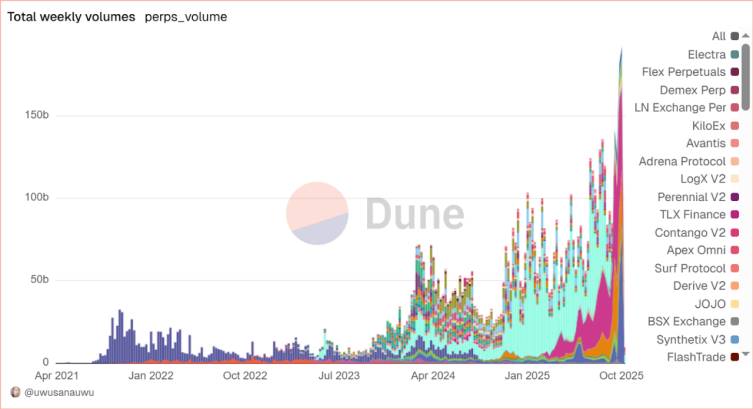Digital euro CBDC is 'symbol of trust in our common destiny' — ECB head
European Central Bank (ECB) president Christine Lagarde released a statement on Friday touting the digital euro, a central bank digital currency (CBDC), as a unifying force in the European Union (EU) and said the ECB is aiming to launch it “as early as possible.”
“As much as banknotes will continue to circulate, we want cash to be in the form of a digital euro as well,” Lagarde said, adding that the central bank digital currency could be used for online payments in the EU. She continued:
“This is a big project because the euro is our currency, your currency. It brings us together. It's a symbol of trust in our common destiny, so off we go with the digital euro in the next and final phase of preparation.”

The ECB governing council announced on Thursday that it will move ahead with building the technical infrastructure to test and deploy a retail CBDC, slated to begin rolling out in 2029, if EU lawmakers pass legislation allowing the ECB to issue it.
CBDCs are widely seen as antithetical to cryptocurrency and the core ethos of permissionless, decentralized finance (DeFi). Critics argue that CBDCs create a digital prison that can endanger civil liberties, freedom of speech, and human rights.
Related: European Central Bank picks tech partners for digital euro
ECB announcement draws heavy backlash from the crypto community
The ECB announcement drew heavy criticism from the crypto community and received overwhelmingly negative feedback.
“Begone, witch, we're gonna use private money,” Mert Mumtaz, the CEO of remote procedure call (RPC) node provider Helius, wrote in response to Lagarde and the ECB.
“The common currency is ‘a symbol of trust in our common destiny,’ but creating a central bank digital currency erodes that trust by opening up the door to real-time monitoring of our payments and spending habits,” political writer David Thunder said.
Meanwhile, legal proposals have been submitted from European lawmakers in France and Germany to ban CBDCs and embrace Bitcoin (BTC), a decentralized, neutral, supply-capped digital currency.
Éric Ciotti of the Union of the Right for the Republic, a political party in France, spearheaded a proposal on Wednesday to ban CBDCs in the country.
German political party Alternative for Germany also submitted a motion in October, urging the government to consider BTC as a national strategic asset.
Magazine: India mulls new crypto ban to support CBDC, Lazarus Group strikes again: Asia Express
Disclaimer: The content of this article solely reflects the author's opinion and does not represent the platform in any capacity. This article is not intended to serve as a reference for making investment decisions.
You may also like
Soros predicts an AI bubble: We live in a self-fulfilling market
The article uses Brian Armstrong's behavior during the Coinbase earnings call to vividly illustrate George Soros' "reflexivity theory," which posits that market prices can influence the actual value of assets. The article further explores how financial markets actively shape reality, using examples such as the corporate conglomerate boom, the 2008 financial crisis, and the current artificial intelligence bubble to explain the workings of feedback loops and their potential risks. Summary generated by Mars AI This summary was generated by the Mars AI model, and the accuracy and completeness of its content are still being iteratively improved.

In-depth Research Report on Perp DEX: Comprehensive Upgrade from Technological Breakthroughs to Ecosystem Competition
The Perp DEX sector has successfully passed the technology validation period and entered a new phase of ecosystem and model competition.

Space Review|Farewell to the Era of “Narrative Equals Hype”, TRON Rebuilds Market Confidence with Real Yields
As the crypto market shifts from “listening to stories” to “seeing results,” TRON demonstrates a feasible path through its solid ecosystem foundation and value circulation.

Bitcoin (BTC) Holds Key Support — Could This Pattern Trigger an Rebound?

